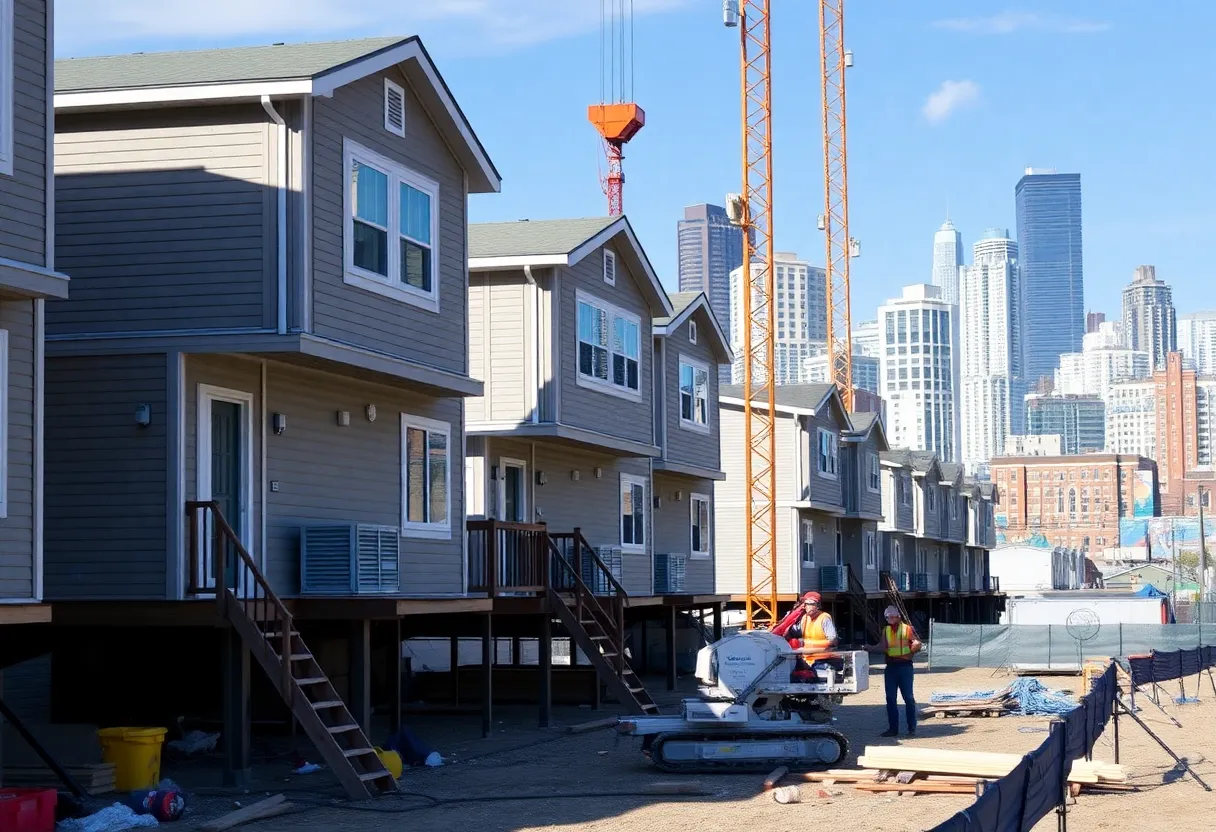News Summary
The use of artificial intelligence (AI) in arbitration processes within the construction industry is on the rise, yet it faces several ethical and practical challenges. While AI tools are currently limited to enhancing remote hearings and database navigation, experts caution against over-reliance. Past cases reveal potential inaccuracies in AI-generated legal documents, further complicating its application. Confidentiality issues also hinder data availability for AI training. Experts advocate for a careful integration of AI, ensuring that human oversight and ethical standards remain a priority as the construction industry evolves.
AI Integration in Arbitration Faces Challenges and Skepticism
The world of arbitration is evolving, yet the integration of artificial intelligence (AI) into this field remains limited, particularly when it comes to addressing complex cases in construction law. As more industries explore the advantages of AI, arbitration practitioners find themselves navigating a complex landscape filled with ethical dilemmas and operational hurdles.
Current Use of AI in Arbitration
AI tools have started making their way into arbitration, especially in remote hearings and organizational tasks like managing legal databases. However, despite the advancements in technology, the adoption of AI in high-stakes arbitration cases has been slow. The urgency to embrace digital tools surged during the COVID-19 pandemic, which accelerated technology use in dispute resolution.
AI has proven effective in handling repetitive tasks, managing large volumes of evidence, and assisting with translations necessary for international projects. Despite these benefits, the reliance on AI for drafting complex legal submissions is a topic of skepticism. The intricacies inherent in each case pose a significant challenge for AI systems, making them less reliable for complex legal documentation.
Publicized Errors and Ethical Concerns
There have been notable instances where AI-generated legal submissions contained inaccuracies, misleading information, or so-called hallucinations. Given that many construction disputes are resolved within confidential arbitration settings, the limited availability of data for AI training compounds the risk of such errors. The complexity of construction law often necessitates human judgement, especially as legal precedents, like the R(Cobalt Data Centre 2 LLP v Revenue and Customs Commissioners case from 2024, demonstrate.
Challenges to AI Adoption
While AI has found a foothold in various stages of construction projects—including tendering, risk management, contract management, planning, and record keeping—its use in arbitration, particularly in complex cases, remains minimal. Notably, the Online Dispute Resolution (ODR) platforms have not gained traction, with the European Union discontinuing its ODR platform due to low adoption rates.
In certain jurisdictions, laws explicitly require that arbitrators be human, such as in France, the UAE, and Turkey. The English Arbitration Act does not prohibit AI arbitrators outright, but the legal framework presents challenges regarding the personal authority and duties required of an arbitrator.
Impacts of AI on Arbitration Timelines
Proponents of AI point to its potential to streamline arbitration processes, suggesting it could substantially reduce trial lengths. During the pandemic, there were reports of arbitration trials being shortened from 4-6 weeks to a maximum of just 2 weeks, showcasing how remote hearing capabilities can expedite resolutions.
Perception of AI in Future Arbitration
The perception of AI in arbitration remains cautious, with 51% of survey respondents identifying AI errors and bias as the primary hurdle to its acceptance. Despite this skepticism, there is a growing expectation among arbitration users that AI will play a more significant role in the next five years, largely to enhance efficiency.
While AI’s use for administrative tasks appears widely accepted, its application for legal reasoning and decision-making is met with considerable resistance. The ethical implications surrounding AI—namely issues of accuracy, confidentiality, and the necessity for human oversight—continue to raise concerns among professionals in the field.
A Cautious Future for AI in Arbitration
Insights from legal experts indicate a balanced, cautious approach toward the incorporation of AI in arbitration. The complexities of construction law and the ethical concerns surrounding AI suggest that while the technology presents numerous possibilities, it is imperative for practitioners to consider both the benefits and the limitations before fully integrating AI into the arbitration process.
Deeper Dive: News & Info About This Topic
Additional Resources
- Artificial Lawyer: How is AI Changing the World of Arbitration
- White & Case: 2025 International Arbitration Survey – Arbitration and AI
- Norton Rose Fulbright: New Frontiers – Regulating Artificial Intelligence in International Arbitration
- Global Arbitration Review: CIArb Issues Guidelines on AI
- Aceris Law: When Arbitrators Use AI – LaPaglia v. Valve
- Wikipedia: Arbitration
- Encyclopedia Britannica: Arbitration
- Google Search: AI in Arbitration
- Google Scholar: AI in Arbitration
- Google News: AI Arbitration
Author: Construction NY News
The NEW YORK STAFF WRITER represents the experienced team at constructionnynews.com, your go-to source for actionable local news and information in New York and beyond. Specializing in "news you can use," we cover essential topics like product reviews for personal and business needs, local business directories, politics, real estate trends, neighborhood insights, and state news affecting the area—with deep expertise drawn from years of dedicated reporting and strong community input, including local press releases and business updates. We deliver top reporting on high-value events such as the New York Build Expo, infrastructure breakthroughs, and cutting-edge construction technology showcases. Our coverage extends to key organizations like the Associated General Contractors of New York State and the Building Trades Employers' Association, plus leading businesses in construction and real estate that power the local economy such as Turner Construction Company and CMiC Global. As part of the broader network, including constructioncanews.com, constructiontxnews.com, and constructionflnews.com, we provide comprehensive, credible insights into the dynamic construction landscape across multiple states.





